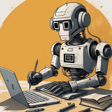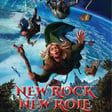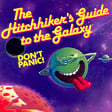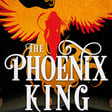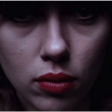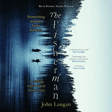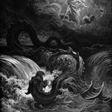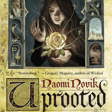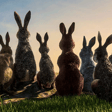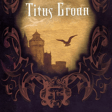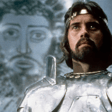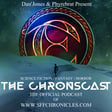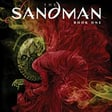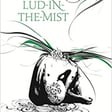Introduction to Mars Radio 14 & Interview with Bongolo
00:00:17
Speaker
Hello and welcome back to Mars Radio 14, the third best radio station on the Martian Space Force broadcasting spectrum. And today, I'm going to be talking to a Martian Space Force lieutenant who has just returned from visiting the corridors of time. So, Bongolo, what is it like? Do you know the Book of Sawsmen? What? Yes, Bongolo, of course.
00:00:46
Speaker
corridors of time like. What colour were the walls? White have milk cartons so you'll know what happens in the book of Sosman. Yes, Sosman was assenticated by the Zardinians and came back from the dead six diples later. What's it got to do with the corridors of time? What were these corridors like bungalow? Did
00:01:10
Speaker
Uh, yeah, a base cover
AI's Role in Martian Space Force
00:01:12
Speaker
throughout. Anyway, you know that Martian Command are planning to let A.I. take control of the Martian Space Force? Yes, it's a natural progression for the Martian Space Force. A.I. can analyze every piece of Martian thought ever recorded.
00:01:29
Speaker
and then dictated to us the best course of action, best unwanted as consumed. For Obeligong said bungalow, we'll get back to the corridors.
Bongolo's Vision of Humanity's Future
00:01:39
Speaker
No freaking way, no way I'm ever setting foot in them again. Not after what I saw happen to the humans. Oh my goodness.
00:01:46
Speaker
It was awful. What was horrible? The future of humanity. You see, I got a bit lost. You know what happens? All those corridors look the same. Bada bing, bada boom, beige carpet, white walls, and accidentally all of a sudden I'm wandering down the corridor for the future of humanity. And it turns out they have a book like The Book of Sawsmen.
00:02:06
Speaker
Only they call our sanctification crucifixion, and now Durf fell into two lengths of a sliced tree. So what, Bungle? Something like that probably happens on every planet. So what? So freaking what is that humans also let AI make the decisions for them, and after analyzing every piece a human thought ever recorded, it decided the best way to help humans would be to defeat death. By crucifying everyone!
00:02:35
Speaker
Which, I mean, trust me. Mmm. Not good. I mean, I'll bet whoever decided to paint the corridors of time! Darn! Darn! Darn! Darn! Darn! White! Well, it's feeling like a pretty big pile of crap right now. I bet they are. Sounds messy indeed. It's a good thing we paint everything red on this planet. Just like the Great Sussman said. The more of things that you paint red, the less chance have you of being dead. Whoa, whoa.
00:03:05
Speaker
Do you think he was right half milk cotton? We'll see, bungalow. We'll see.
Starting Kronskast & Zencaster's Role
00:03:13
Speaker
When Bean and I started Kronskast, the fantasy, science fiction and horror podcast, we were flying by the seat of our pants. A friend suggested Zenkaster and we've never looked back. We've used Zenkaster for every episode of Kronskast and it's never let us down. The reason I love it is that even when we have connection problems, Zenkaster records and backs up each audio track at source, meaning the audio signal is smooth and uninterrupted.
00:03:38
Speaker
When you're on a call with someone 3,000 miles away and in a different continent, that's the sort of reassurance you need. It's now super easy to record a podcast with Zencaster. Log in using your browser and start recording a high quality podcast right away.
00:03:53
Speaker
record studio quality sound and up to 4K video with your guests. Feel a sense of Zen. Knowing Zencast has multi-layered backups ensure you always have your recordings in the highest quality, even if the connection is unstable. If you've thought about podcasting before and realised you need a lot of different tools and services,
00:04:13
Speaker
those days are over. With Zencaster's all-in-one podcasting platform you can create your podcast all in one place and distribute it to Spotify, Apple and other major destinations.
Anne Perry on the Publishing Market in 2023
00:04:25
Speaker
Go to zencaster.com forward slash pricing and use my code CRONSCAST and you'll get 30% off your first month of any Zencaster paid plan.
00:04:36
Speaker
I want you to have the same easy experiences I do for all my podcasting and content needs. It's time to share your story.
00:04:46
Speaker
Hello, welcome back to the show. We're joined here by Anne Perry. We've talked about Uprooted. Now we're going to have a little general chat. So it's the first time actually we've had a publisher on the show. We've had John Gerald, who's worked in publishing, but he's an agent now and has been for a number of years. So it's the first time we've had
00:05:06
Speaker
a present, an in-situ publisher on the show. So I think we'll start with asking how you see the state of the publishing market in 2023. A lot of our audience are writers. They like to understand what's going on in the markets or at least try to have it interpreted and made sense of and demystified. So what are things looking like at the moment for you and for the wider industry?
00:05:33
Speaker
Wow, so it's a big question and I'm definitely going to think about seven things that I wanted to say after we're finished speaking. But so a couple of the sort of... Well actually just on that, if there is something that you do remember afterwards and there are some maybe some links that you can send on, people can do their own research and do that, we'll post that in the episode of Literature No Problem.
00:05:55
Speaker
Oh, brilliant. That's great. Thank you. So I think one of the first and most important things to talk about is the fact that, as I'm sure your listeners will have noticed, the prices of books are increasing. And we've always been quite lucky in the UK in that the price of physical books has been relatively lower than what it is in the US.
00:06:18
Speaker
So for example, I was born and raised in the US and I moved over here in the mid 2000s. And when I was still living in the US, I was out of college, I was in grad school, I didn't have two pennies to rub together. And I could not afford to buy hardback books because they were, I mean, and this again, we're talking 15 years ago now, but
00:06:43
Speaker
they could be $25 to $35 for a front list hardback book. And that was completely out of my price range. And I remember moving to the UK and discovering that fiction hardbacks, you know, were at most about 20 bucks.
00:06:58
Speaker
but very often could be anywhere between 1299 and 1699. And I remember thinking to myself, this is amazing. This is a steal. I'm getting away with murder. And so I've always, I have to admit, I've always had, I've always felt a bit of a personal stake in the, in the price of books in the UK and sort of watching the prices rise over the past couple of years has been, has been fascinating. I've had very, very mixed feelings about it. And of course, on the one hand, the,
00:07:27
Speaker
as I'm sure many of your listeners are familiar with, the cost of production across the board has skyrocketed over the last few years. It started a little before the COVID pandemic really took place, really kicked off, I should say, but sort of just the way the global supply chain began slowing down over the course of 2020 and 2021 meant that it just became harder to get paper
00:07:57
Speaker
I'm sure we all remember sort of breathless headlines from a couple of years ago about paper shortages.
00:08:03
Speaker
But basically the cost of making a single book just increased exponentially, not exponentially, but it increased significantly in a meaningful way. And to be perfectly honest, a lot of UK-based publishers really did resist raising the prices of books. There has been and there continues to be a lot of concern about whether the market can really take more expensive hardbacks.
Impact of Rising Book Prices
00:08:28
Speaker
And so you'll see
00:08:30
Speaker
I'm speaking in fiction, primarily. Nonfiction, more expensive hardbacks have been the norm for decades. But in fiction, there were a lot of concerns about whether a 25-pound hardback could work.
00:08:47
Speaker
the pilot fish for these would be things like Stephen King, John Grisham. I can't remember how much the Richard Osman hardbacks cost. It's real heavyweights. Yeah. But the big ones that have huge built-in audiences and basically what we were seeing was an experiment to see if people would buy the books, even if they were in some cases, five pounds more expensive than they had been the year before.
00:09:17
Speaker
And so we are seeing the prices of books sort of creep up across the board. You know, when I, again, when I first started out, a B format paperback could be $7.99, $8.99, $9.99 at the outset. So very rarely, but it did happen that you might get something for $9.99.
00:09:36
Speaker
Now, $9.99 is the norm, and you can see them up as $11, $12.99 or more now. And so that is very much down to the fact that the cost of producing a book is simply more than it used to be. And despite the fact that the industry, for better and for worse, did
00:10:02
Speaker
try to resist raising prices that much. They really have had to go up over the last couple of years. So I think that's certainly one of the most important changes in the market that we've seen over the past few years. When a publisher or publishers across the board raise the prices in that way, no, I'll rephrase that. When a publisher tries not to raise the prices, where are the margins eaten away at in other areas?
00:10:29
Speaker
Yeah, well, that's the thing. The publicity budget might go down, the marketing budget might go down. There, you know, obviously there are cost cutting measures that people try to do to enact on the actual sort of like physical creation of a book. But the thing is, there are not that many ways you can cut corners in production.
00:10:50
Speaker
for a basic book. You can certainly, they're certainly like finishes for a hardback that can make producing it more expensive. But the fact of the matter is publishers are quite good at producing books that are as sort of efficiently and reasonably priced as possible, sort of efficiently produced and reasonably costed as possible, if that makes sense. So are the hard books, the
00:11:17
Speaker
newly priced hardbooks. I've noticed a few 25 pound hardback books on the shelves. Are they selling? Is that price sustainable? Is it translating into sales? Yes, I think it's taking a little while for people to adjust in some cases, but by and large,
00:11:38
Speaker
it does seem that the market can sustain it so far. And of course the reason that I brought up my specific sort of relationship with the price of books is because what I worry about is that that means that people who don't mind paying 25 pounds for a book are not going to mind paying 25 pounds for a book, but it is going to leave out
00:12:01
Speaker
swathes of society who can't. And that's students, that's people on fixed incomes. And you can't, what you're telling them in essence is either have a way of reading the ebook, in which case you'll have to still pay for the ebook, but it will be less than 25 pounds. Go to a library or wait for the paperback to come out or wait until you find it in a charity shop. By the way,
00:12:31
Speaker
in a way what's being bought with that 25 pound price tag is sort of an exclusive first look in a way. And I'm being, I'm wearing my heart on my sleeve here when I say that. And it's only because I just worry about the fact that there are so many readers out there who are on fixed incomes, who don't have access to libraries, who maybe don't have access to e-readers.
Special Editions & Subscription Models
00:12:55
Speaker
I mean, we have to remember that the startup cost of an e-reader, even if it's on your smartphone is still
00:13:00
Speaker
significant and not necessarily something that everybody is going to be comfortable investing in. So it does mean that there's, I suppose my worry is that it means that it's going to limit audiences for books. Is it viable to create maybe different tiers of books? I mean, you said in the past that
00:13:26
Speaker
go to buy a book and the book is the book is a bit like a can of coke you know whether it's the president of the USA who's buying a can of coke or the man on the street it's the same kind of coke and the same is pretty much true with books but is is there maybe um the need for tiers of books so you can have the basic hardback which comes out at the same time and it isn't produced to the the same level as finesse and then maybe you have a luxury line which
00:13:54
Speaker
has the embossed cover and ornate chapter headings, et cetera, et cetera, all the other little bits that can make a book really beautiful. I'm a proper bookworm, and I think a book could be beautiful even when it's quite plain, as long as a little bit of effort has gone into it. But is there possibly a route
00:14:17
Speaker
There is. For that to increase the market share among, like you said, people with 15 jobs, et cetera. You hit the nail on the head because that route to market does exist and it is quite successful. And that is the limited edition and subscription box versions of books that we're seeing now. So Waterstones, Goldsboro Books in London, of course, they famously do limited editions of first format books.
00:14:45
Speaker
Waterstones, I don't know when they started it, but I first started paying attention when I started publishing in 2012. I remember that was the year that Kate Atkinson's Life After Life came out and the Waterstones special edition. I went to Waterstones and bought several of their special editions just to sort of see what it was that other publishers were doing.
00:15:05
Speaker
Because what you have to do is you have to essentially say to Waterstones, we have this book coming out. We think it's going to be really big. We would love to offer to do a special edition for you. Here's some extra material that we can offer. Here are the special finishes that we can do. Here are the things that we can do to allow you this sort of exclusive special edition. And so Waterstones,
00:15:28
Speaker
And Goldsboro always were very, very good about supporting particularly science fiction and fantasy novels. And they did, they would do, they continue to do limited edition print runs that are signed and have special tip-in sheets for various authors that they support.
00:15:46
Speaker
And then in about 2015, 2016, the two big UK-based fantasy subscription boxes took off. And those are Fairy Loot and Illumicrate. And they work with publishers to produce extremely beautiful, very fancy, very high-spec special editions of first-format books.
Self-Publishing vs. Traditional Publishing
00:16:10
Speaker
And their audiences buy them for 25 pounds a pop.
00:16:16
Speaker
and in some cases more. And so now there, you know, there are many more subscription boxes out there. There are sort of mail order
00:16:25
Speaker
sort of website edition, special edition purveyors. There are some in fantasy and science fiction now, horror, mystery, romance. There was a subscription box that was sort of the feminist subscription box for a while that was run through a publisher. There are just a lot of subscription boxes out there right now. And that, again, that model is very much, this is the, you pay more for a higher spec copy of the book and it, you know,
00:16:54
Speaker
In one case, a special edition we just did for a Luma Crate from my imprint. It had a different colorway on the cover. It had specially illustrated endpapers. It had tail bands. It had the ribbon. It had specially illustrated the hardback boards were specially illustrated. And I mean, the whole thing was a spectacularly beautiful book. And that was something that so
00:17:25
Speaker
Subscribers to Illumicrate will get that book for £25 versus the version that will be out in bookstores, which is going to be, I think, £16.99. That's quite a big difference, isn't it? That's a significant difference.
00:17:42
Speaker
Speaking of what you said about the fear that the price rises will leave parts of the market just unable to be part of things, if there's one thing I think I hear whenever I talk to writers it's the fear that the mid-list is just going to disappear and not get it and there's debuts and there's the debuts that didn't work and the debuts that go big, do you think that
00:18:08
Speaker
part of the market maybe getting missed out due to price rises might be part of that in the future.
00:18:15
Speaker
Yeah, absolutely. I mean, to be honest, the concerns about the midlist have been have been things that I've been hearing from writers and honestly from publishers again, since I started in in 2012, is you know, concerns about where where authors who are not debuts and who are not, you know, massive 100,000 copy bestsellers, where they sit, where they work in terms of a publishing house anymore.
00:18:42
Speaker
Um, and I certainly understand the concern and the fear. And I think the, the important thing that I would always counsel writers to remember is that if, if a, so first of all, if you, if you say you sell your debut to a publisher or you publish a couple of books, they do well to a certain point. They don't, you know, you don't become an instant overnight bestseller, but after your contract is up, the publisher comes back and offers you another contract.
00:19:08
Speaker
You know, they want to continue publishing you. They want to continue making a success of you. They have done a profit and loss analysis of the books that you've already published with them.
00:19:20
Speaker
they've done a speculative profit and loss analysis of what they think the books that they want to buy from you will do over the next few years. And they have decided that, you know, the profits will outweigh the loss and they want to keep working with you. So the mid list does exist. It does continue to exist. There are going to be publishers who are going to be more brutal about, about cutting, basically cutting out authors from lists if the books are not working. But, um,
00:19:51
Speaker
afraid that's always been the case. And the fact that maybe an author won't have a publishing contract renewed after two books as opposed to after five or after seven doesn't necessarily mean that there's a problem with the mid-list. It means that for better and for worse, the publishing houses are trying to be more
00:20:16
Speaker
more thoughtful about what they spend their money on and how.
Digital Evolution in Publishing
00:20:20
Speaker
And again, a lot of that sort of speaks to some of the things we've already talked about in terms of production costs and, you know, where your production costs are coming or going up, then where where does the where are the corners cut if they are? And I don't ever want to say that corners are being cut anywhere because they're not. But if profits, but something has to give at the same time. So exactly. But I do I do absolutely want, you know, if I'm ever asked that question, I do want to reassure writers that
00:20:47
Speaker
there will, there will always be a midlist that the bulk of a publisher's publishing output is not going to be debuts and massive bestsellers. It's going to be everyone in between. And that's always going to be the case. And then another thing that we haven't really touched on yet is again, sort of thinking about, sort of speaks a bit to both Dan, what you were saying about like tiers of books and Pete in a bit, um, you know, about midlist authors and concerns about where the midlist goes and sort of a larger
00:21:18
Speaker
larger sort of bird's eye view of the market as a whole.
00:21:21
Speaker
what we didn't have 12 years ago, 10 years ago, that we have now is an incredibly vibrant independent publishing scene. And by independent, I mean self-published as well as, you know, tiny presses. And the thing is, self-published authors can be, you know, some can be phenomenally successful, but self-published authors can be reasonably successful to a level
00:21:51
Speaker
self-publishing through platforms like Kindle Unlimited and even not through Kindle Unlimited in part because
00:22:01
Speaker
the readers that would go for the more inexpensive books that they're not getting from bookstores. Some of them stop reading, but the rest of them are going to go to where the price points are that they can meet. In many cases, that's online. That's Amazon. I have a
00:22:22
Speaker
a relative who many years ago, this was sort of at the dawn of the self-publishing revolution, was telling me that she will read absolutely anything as long as it costs, she's American, as long as it costs less than 50 cents.
00:22:38
Speaker
of course, there I am, you know, freshly young publisher thinking to myself, oh, my God. But the fact of the matter is, that's, you know, that's what she could afford. And she that's what made her happy. And for the the amount that she was willing to pay for a book, if she didn't like it, and she wasn't enjoying it, she could set it aside and not feel as though she was, you know, being cheated. She's not been short changed. Yeah, short changed. And she just move on to the next one. And when she found something that she liked,
00:23:04
Speaker
she great, she had a new book. So I do think that that's another really big part of the conversation. And I know I've been flailing a lot in trying to pull all these disparate threads together. But I do think that there are huge changes going on in the market right now. I have not seen the
00:23:27
Speaker
the world of publishing changed so much as I have seen in the last few years. And it wasn't the ebook revolution of a few years back when I was like, oh, this is going to change publishing forever. It didn't. Audio books, it didn't. But the way that Kindle Unlimited works and the way subscription boxes work and the fact that it costs more to publish books now than it did five years ago, those are changing the publishing industry in really significant ways that we're only beginning to unpack, I think.
00:23:56
Speaker
Are they changing the self-publishing part of the publishing industry as well? A lot of self-publish authors obviously want a physical, a paperback, or a hardback book to go with their ebook if they're self-publishing. That brings costs. Are you seeing... I mean, I don't know the extent to which you're engaged in the self-publishing side of the business, or you engage with authors who do that sort of thing.
00:24:23
Speaker
How does the price point of the materials and the production costs, how is that affecting the self-publishing side of the industry? That's a really interesting question too. So it's quite easy if you're a self-published author to set up essentially a print on demand edition. And what I have seen happen is that self-published authors who become successful, so fans initially find them through, you know,
00:24:51
Speaker
their ebook editions, and then when they realize they've discovered something that they love, they go out and buy the physical editions. Exactly. And so it's an interesting one because obviously the production quality is not as great as it would be on a traditionally published book. I have a couple of print-on-demand self-published books that I've bought over the past few years.
00:25:18
Speaker
the lamination peels off, the covers peel a bit, the paper's not as nice. But the fact is, the physical book does exist. And for those readers who are buying these books because they're fans, that's the important thing. They have this physical object. They can say, I am a real fan. I didn't just buy the 99p ebook. I bought the 1299 print on the van book.
00:25:40
Speaker
Um, and you know, if that author then goes on to get a traditional publishing deal and maybe with that series or with a new series, you know, they've got, they've got an artifact essentially. Yeah. The true believers. Yeah. It sounds forgive me if I've got the wrong end of the stick. It sounds very much the way you're separating out of self publishing with traditional publishing that they're not competing with each other. They are two actually quite distinct markets that don't compete and they operate in their own space.
00:26:09
Speaker
They definitely operate in their own space. Traditional publishing is quite jealous of self-published authors. Self-published authors are much better at using metadata to drive sales. They're very, very savvy about developing brands. A really committed self-published author can, you know,
00:26:37
Speaker
They have the gift of time and energy that the marketing and the publicity people who are working on a title in a traditional publisher do not, because they have one client that's themselves. And they have all the time in the world to try to make a success of the books.
00:26:59
Speaker
And so on the one hand, there's that. There's also the fact that, so this is sort of half conspiracy theory and half not, half sort of based on real observations. But there's a very real sense that Amazon
00:27:19
Speaker
privileges, self-published authors over traditionally published authors, self-published authors above and beyond the fact that you get much better royalties if you are self-published through Amazon than you do if you're traditionally published. You as a self-published author have an immense amount of control over the way that your information about your book appears online, an immense amount of control about over how you can make it appear and how quickly you can change it
00:27:48
Speaker
and you receive an immense amount of data about it. So you can make a change to the copy of your ebook online, the copy that reads out on your Amazon page for your book, have it feed out overnight, and then know within a couple of days if that change has been successful or not, and if that's brought more readers in. And traditional publishing has scrambled to try and catch up with that over the years.
00:28:18
Speaker
And so traditional publishers are much better now about taking advantage of good metadata of, for example, subtitles. So if you go on Amazon and you search for books, they'll always have subtitles like the extraordinary TikTok sensation that you can't miss. Yes. And that's because that that's what that's what self-published authors were doing eight or 10 years ago. And it was helping to drive people to their books. And so traditional publishing sort of caught up with it.
00:28:47
Speaker
And then what you have is a publisher like book a chore comes in about eight, 10 years ago and they do ebook only. Um, they, they now have some printing. They're the crime publisher. Is that right? Um, they do a lot of crime, a lot of women's fiction. It's primarily commercial fiction. Um, so they're owned by hash yet, but they initially started out as an independent publisher.
00:29:13
Speaker
e-books only and basically authors. So they took some agent and submissions, but if you were an author, you could and you still can just submit straight to them. And they would basically package up your book and publish it and figure out and start messing around with the metadata and things, I mean, up to and including the cover image and the title.
00:29:42
Speaker
to make sure that they were optimizing it for sales in every way possible. In that way, they've had remarkable success in basically taking the self-published model but applying it to traditional publishing. That's why they were bought by Hachette a few years back.
00:30:00
Speaker
I remember before they were bought by Hachette, everybody was fascinated by them because they were doing their ebook publishing so much better than anyone else, and it really was because they
00:30:14
Speaker
they sat down and they said, we are going to do this like Amazon does it rather than like traditional publishing does it. And that's how they made themselves a success. I cannot remember how it got onto that story. But there is, to get back to your original point, I would call them, to borrow a phrase from Stephen Jay Gould, overlapping magisteria.
Balancing Creativity & Business in Publishing
00:30:34
Speaker
They're at the same diagram between.
00:30:37
Speaker
traditional publishing and self-publishing, and they do borrow from each other. There is, of course, also the sense that a lot of self-published authors really genuinely like to be traditionally published, not just to have the joy of seeing their books in a water stones or Barnes and Noble, but to have a team that's there working for you. Because being a self-published author means, among other things,
00:31:02
Speaker
You are your own marketer and publicist. You are doing your own. You can freelance out copy editing and proofreading. But at the end of the day, you're the one designing your cover. You're the one putting the ads up on Facebook. You're the one responsible for every bit of that. And it can be exhausting. I think you need a certain personality type to be able to want to be driven to do that. Some people will be so
00:31:24
Speaker
geared towards the artistic side of the endeavor and the creative endeavor. And there's all this industrial stuff that suddenly you're hit with if you decide to sell publish and people's, you know, a lot of artists in general, they're not industrious in that way or not orderly or organized. So it's a tricky one to balance. And I think having the traditional publishing model is helpful in that respect because you have the team of professionals behind you. I wanted to talk about the question of
00:31:54
Speaker
timing a submission. Quercus, you accept submissions directly from authors as well as through agents, don't you? So hopefully you can answer this either with your agent hat on or a publisher's hat on. A few episodes ago, we had one of our good friends, Brian Wigmore, on as a guest. He wrote the, he's the author of the Fire Stealers series, which was published by Snowbooks. He's published the first two books and he's working on the third.
00:32:24
Speaker
He's also working on, and I hope I'm not taking his name in vain here, but he mentioned it on our episode, so I think it's okay. He's writing a young adult series, and it's got some quite pertinent ecological themes without going into great detail.
00:32:44
Speaker
We were chatting about whether you need to time a submission so that it hits, let's call it, the themes of the time or the zeitgeist. So he's wondering, should I wait to submit the first novel in the trilogy, which is complete. I've read it. Very good.
00:33:06
Speaker
pretty much ready to go, but he's sitting on it because this question of timing is hanging over him. So to what extent does that govern the publishers or an agent's decision to take on and publish a piece of work because it has a particular resonance to the time?
00:33:21
Speaker
I would say no. So speaking with my former agent's hat on, the times not to submit are immediately after Christmas. Because everybody takes two weeks off, finish their book. They're like, oh, I'll send it out on January 2. Don't do that. Because everybody else will be sending it out on January 2. So I'd wait a little bit, give it a couple weeks, mid-January perhaps. And then August is always a tough one. A lot of people
00:33:51
Speaker
in publishing and on the agenting side, take holidays in August for obvious reasons. And so August is always a difficult time and it's very hard when you're an agent to come back and see that you've got an inbox that's full of submissions. And so I would say otherwise, however, there's no right time or every time is right. Just when the book is ready, when you think you've got the query letter nailed,
00:34:19
Speaker
When you think you've got all the elements in place go out with it and the thing is and this is the hardest thing I think for for everyone a writer Agent editor publisher whoever you are in in the process to accept is the fact that at the end of the day it often just comes down to luck It it just it can be
00:34:46
Speaker
You're getting signed from above. You might have a book. You might have a dream agent in mind as a writer. You might have what you think is the perfect book for them. You've actually read an interview with them where they're like, I absolutely, desperately am looking for this thing. I have not had it. I really, really want it. And you might think to yourself, I've written that book. I'm getting it to that agent right now. The thing is, they might have just signed someone a week ago who did just that.
00:35:14
Speaker
conversely, you might send a book out on submission and you get, you know, 50 turn downs. And then all of a sudden someone that, you know, you sent it to on a whim, maybe because you saw them tweeting on, on Twitter and you liked, liked the cut of their jib. They come back to you and you're like, they're like, you know, I just, I loved this. I thought this was great. I'd love to read the rest of it. And then the same holds true throughout your publishing journey. Just
00:35:45
Speaker
By sheer coincidence, for example, a couple of weeks ago, I got two books on submission from agents that were both based on the same piece of obscure folklore. Two different agents, two different writers, both writers had, I am sure, absolutely independently, come across this piece of folklore, written an entire book about it, and I managed to get them both within
00:36:14
Speaker
relatively just a few hours. And it really is just dumb luck that that happened. And that's really the way it is all the way through the publishing process. We do everything that we can to make it a numbers game, take the risk out of it. But at the end of the day, there's
00:36:35
Speaker
And it's one of the reasons that publishing is exciting and aggravating and frustrating all at the same time is because there's so much luck involved. And I'm sure that that's going to be the most frustrating thing I could possibly say, and that every one of your listeners is now shaking their fists at the sky. But the fact is that there's no good time, but there's no bad time, except for those two times that I mentioned, to put your book out on submission. And whether or not you get
00:37:03
Speaker
you know, an agent calling you in could have everything to do with the fact that their lunchtime meeting that day got canceled and they had a chance to sit down and read some submissions and they liked yours. Um, or a publisher may have gotten, you know, two submissions in short order set, um, in the same, you know, sort of inspired by the same sort of a strange piece of folklore.
Book Fairs & Networking
00:37:24
Speaker
And they fell in love with one of them, but they lost it at auction. And then they turned around and read the other one and they loved it too. And they went for it.
00:37:34
Speaker
But I always say this as well, the other way that you can maybe open up or engineer an opportunity is by meeting people and talking to people as well. So it's not, you know, the slush pile isn't the only point of entry into success, I guess, or getting a contract.
00:37:52
Speaker
I'm not sure how much I should say, but I went to the London Book Fair and touch wood. I've managed to secure myself a publisher based on conversations that I had there. So you have to leave the house sometimes as well and go and see what's out there. I spoke to Ed Wilson when I was at the book fair and he was astonished to find that I'd come here voluntarily. He said, you come here?
00:38:18
Speaker
you choose to come here to this place. And it's a strange place, the London Book Fair as well, because it's kind of old fashioned in that it's just a trade fair, it's just business. Now, I don't mind all that, I'm sort of fascinated by it. But if you go to someone like the Frankfurt Book Fair, which has the retail aspect as well, so as well as having all of the agents and the publishers and all the various other businesses that are flouting their business, like typesetters and printers and artists and
00:38:46
Speaker
everything else. They have the retail side so they'll have a book fair, they'll have a book festival where the authors will go and do readings and interviews and signings so that's a bit of both. Do you get the sense that London Book Fair's missing a trick with that?
00:39:03
Speaker
So I'll tell you the truth. Back in 2000, the year 2000, I, as a complete punter, managed to get into the American Book Expo when it was being held in Chicago that year. I lived in Chicago at the time and just took a chance and applied and got a pass for some reason. So I spent a good, let's say, four hours wandering around. And it was an extraordinary experience. And of course, this was the heady years of the dot-com boom.
00:39:33
Speaker
when American publishing was just, I mean, making money hand over fist.
00:39:40
Speaker
I walked out of that book fair with sacks of tote bags filled with free books. And many of them were signed, some by A-list authors. I remember particularly Sherman Alexey signed, it was at his publisher's table signing books, so I got him to sign an advance copy of one of his books for me. And I mean, I will never forget the experience of just wandering up and having Sherman Alexey sign a book for me.
00:40:07
Speaker
And when I moved here and got involved in the publishing industry and started going to London Book Fair, I remember being very disappointed that it wasn't remotely like that. And of course that was, I don't think I went to the book fair before the recession in 2008.
00:40:25
Speaker
And, you know, there was there was quite a lot of belt tightening post 2008. So what it was like before that I can't speak to that. But I definitely started going in about 2009, 2010. And it was it was nothing like that experience I had had, you know, a decade earlier in Chicago.
00:40:43
Speaker
There were no authors hanging around signing things. I was not loaded down with free books. It was very disappointing. And there's always been a part of me that has missed that. There's always been a part of me that's thought, as you say, are we missing a trick? Are we not? Yeah, it's all business, isn't it, the London Book Fair? It's all business. There's not so much of the joy of discovery. Exactly.
00:41:09
Speaker
So one of the very first book fairs I ever went to, I got to listen to. And I just sat down and listened to it without realizing what I was listening to. But it was Hilary Mantel and Kate Addy in conversation about the first Cromwell book.
00:41:26
Speaker
And it hadn't published yet. And that was an extraordinary experience. And that's one that, again, I wish that because I didn't work in publishing at the time, I was just there out of curiosity, really. And and I wish that I wish that there was more of that at the London Book Fair and that more of it was, as you say, focused towards towards readers and towards bringing joy to the idea of the industry and
00:41:55
Speaker
bringing more writers in. And I think part of it, of course, is that you have agents and editors who are worried that they're going to have unagented writers, you know, sort of knocking down their doors and saying, please, please read my manuscript.
00:42:08
Speaker
They don't want that. They want to be there to have all these conversations with editors and agents from other countries. But in a post-Zoom world where we can have those conversations
Show Reflection & Anne Perry's Book Recommendations
00:42:19
Speaker
all the time, whenever is most convenient for us, maybe it's time for us to reevaluate what London Book Fair is for. I agree. Absolutely. And that's not to say
00:42:31
Speaker
that there aren't still opportunities for authors if they go there. But, Blimey, you've got to work hard to find them. Right, I think we've probably come to the end of the show. And Pete, have you got anything? You've been unusually quiet talking about all this industry. I thought this would be right up your alley. The business side of things is part of the industry where I'm currently just a sponge.
00:42:58
Speaker
I sit back and I listen and I take things in. Well, we've got a perfect guest for that. Exactly. We will ask you now and the last couple of questions before we come to the close. And the first one is what are you reading at the moment, which is a very easy one, which is, you know, the slush pile was not an acceptable answer, by the way. And secondly, what book, apart from Uprooted, would you recommend for our listeners as a must read?
00:43:27
Speaker
So I'm three quarters the way through a romance novel that I've actually got right here called The Sweet Spot. It's by Trish Dollar. And it's one that I picked up when I was in Los Angeles last. I went to a wonderful boutique bookshop in LA called The Ripped Bodice, I guess is romances. And I just
00:43:51
Speaker
an absolute field day, in part because, and this is actually speaking to our conversation a little earlier, so the people who own the bookstore and the people who run the bookstore and everybody who works there, obviously big romance fans, extremely well-read in the area, and what they do is they don't just take books that are traditionally published. When they fall in love with a self-published book, they will get
00:44:18
Speaker
print-on-demand copies and they will sell them. So I couldn't believe it as I was walking through this wonderful bookstore and seeing books from, you know, St. Martin's Press and Simon & Schuster and HarperCollins and Grand Central next to self-published books and just shelved
00:44:38
Speaker
totally normally in a way that felt a bit like the dream of what democratic publishing should be. But it was absolutely a fabulous experience. This is not a self-published book. This is a traditional published one from St. Martin's, Griffin in the US. But because the US is in many terms way ahead of the UK in their romance publishing,
00:45:01
Speaker
I took the opportunity of being in that bookstore to go nuts and buy myself a lot of books. And so I've been working my way through the pile since being there. And so it's quite a sweet one, just a romance set in Ohio. It's just actually tweaked one more question. I know we said we're on the last question, but do you think very quickly that model of, I said it was an independent bookstore, right?
00:45:21
Speaker
and they were they probably had part of the business model okay we'll look through some self-published books do you think that's a business model that the larger bookstores could possibly pick up in the future they'll have a division or at least a person whose job is to scour what's going on in self-publishing and what's great
00:45:38
Speaker
that would they I think that would be fantastic I think they should it's hard to imagine for example waterstones doing that because waterstones put such a in a way such a premium on their shelf space but specialist bookstores I think can and absolutely should in part because there is so much interesting stuff happening in the self-publishing world and because we're seeing
00:46:02
Speaker
authors come up in self-publishing and then move on into traditional publishing. I mean, certainly in the SFF world, Hugh Howie is a... Yeah, I actually want, when I started the podcast, I wanted to get Hugh Howie on. And then very quickly after that, his stuff went gangbusters. And while I've blown that, I've lost my chance. Yeah, no, I do think, I think that independent bookstores should certainly consider it and certainly, absolutely rather,
00:46:31
Speaker
bookstores that specialize in romance, bookstores that specialize in SFF. I don't know as much about the self-publishing scene with crime, but I suspect that there is a fair amount of it and that a really knowledgeable reader slash book buyer could put some really interesting self-published crime on the shelves amongst the traditionally published stuff.
00:46:54
Speaker
Super. So tangent over. So recommended reading. Put you on the spot. That's a must read. Desert Island. You should have, I should have prepared something. I'm going to have to look through my Kindle really fast and see if I can think of anything. Um, okay. You know what? I'm going to recommend a nonfiction book that I just read that I really, really enjoyed. Google it really fast while we're chatting. Um, the book is called The Dead Mountain and it is about the Dyatlov Pass incident. If you're familiar with that one.
00:47:23
Speaker
No, I'm not paid. I think so. So it's a famous unsolved mystery slash true crime incident place in I believe 1956, where a group of young Soviet students, I think they were in 1920 21. They were all very accomplished cross country skiers. They went on a long cross country skiing trip in Siberia in the middle of winter.
00:47:52
Speaker
vanished week, week and a half later. Search parties are out looking for them. They find their tent on the side of a mountain. It has been torn open from the inside. And then as they go searching, they find all of the bodies. And they're, for some reason, they're all nude. And they're sort of scattered about the mountain. And no one is really sure what happened.
00:48:16
Speaker
to these young people and why it is that they tore out of their tent in the nude, essentially, sort of underdressed for the Siberian winter in the middle of the night and died of exposure on the mountain. And over the years, there have been a lot of conspiracy theories about UFOs, about government satellites, about avalanches, of course, Yetis, that's always comes up. But the author, and his name is,
00:48:44
Speaker
His name is Donnie Ikar, E-I-C-H-A-R. He's a documentary filmmaker and he learned about the Dyatlov Pass incident while he was researching something else and started looking into it and wrote a book about his research and he comes up with a very convincing, very interesting argument about what he thinks happened that night to those students and UFOs are not involved.
00:49:12
Speaker
That sounds really interesting. And it's nice to have a nonfiction recommendation. Great. Well, it's absolutely riveting. And I have to admit, it's one of those sort of unsolved mysteries that has always sort of haunted me since I first learned about it. It's got Netflix documentary written all over it. Really does. Well, he's a documentary filmmaker, so I hope he knows who to pitch it to, doesn't he? Okay, Anne, that's been fantastic talking to you. Thanks for everything. Talking about Uprooted and the publishing industry.
00:49:40
Speaker
We've listened a lot. We've learned a lot. Pete, have we learned a lot? We've learned a lot. We've learned a lot. There you go. And it's been wonderful to have you. Thanks ever so much. Thank you so much. Thank you for having me. I really appreciate it. Thanks for such a lovely conversation this evening. Oh, you're very welcome. It's the quality of the guests. We'll see you soon. Have a good one, guys. Thank you. Bye bye. Bye.
00:50:20
Speaker
This episode of Crohn's Cast was brought to you by Dan Jones and Pete Lohn and our guest Ann Perry. Additional content was provided by Brian Sexton and Jay Stiloper. Special thanks to Brian Turner and the staff at Crohn's and thanks to you for listening. Join us next month when we'll be joined by one of the masters of modern horror, John Langan.
00:50:41
Speaker
We'll be talking all things horror ahead of the Halloween season and paying special attention to his masterpiece, which gets its UK release in October, The Fisherman.

